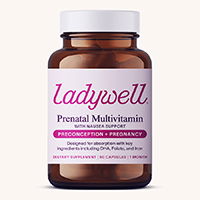When discussing menopause, the spotlight often falls on the moment periods stop. However, the transition to menopause, known as the menopause transition (MT), is a gradual process that unfolds over three distinct phases: perimenopause, menopause, and post-menopause. Among these, perimenopause marks the start of the journey, yet it remains widely misunderstood. Here, we’ll explore the symptoms, hormonal changes, and care strategies for navigating perimenopause.
What is Perimenopause?
Perimenopause, derived from the Greek word peri meaning “around,” refers to the transitional stage leading up to menopause. During this time, the body begins shifting from regular menstrual cycles to no periods at all. Perimenopause officially ends 12 months after your last period, signaling the onset of menopause.
During this phase, the ovaries gradually release fewer eggs, and estrogen levels start to decline. This hormonal shift often leads to a variety of symptoms, such as irregular periods, hot flashes, and mood swings, as the body adjusts.
When Does Perimenopause Typically Begin?
Most individuals enter perimenopause in their early 40s, though it can start as early as the late 30s. Genetics play a significant role in determining when menopause begins and how long it lasts. A study involving 200,000 participants identified genetic factors linked to the timing of menopause, though research is ongoing.
If you’re in your 30s and notice menopause-like symptoms—such as hot flashes or irregular periods—consult your healthcare provider to rule out underlying conditions.
What Hormonal Changes Occur During Perimenopause?
The hallmark of perimenopause is the gradual decline in estrogen, a key reproductive hormone. Produced by the ovaries, estrogen regulates the menstrual cycle and maintains various bodily functions. As estrogen levels drop, they disrupt the balance with progesterone, another reproductive hormone. This hormonal imbalance eventually leads to the cessation of ovulation and menstruation, marking the end of fertility.
Recognizing Perimenopause: Key Symptoms
While every individual’s experience is unique, common perimenopause symptoms fall into several categories:
-
Irregular Periods: The first noticeable sign of perimenopause is changes in your menstrual cycle. Periods may become shorter, longer, heavier, or lighter, and the time between cycles may vary.
-
Hot Flashes and Night Sweats: Declining estrogen can confuse the hypothalamus (the brain’s temperature regulator), leading to sudden, intense feelings of heat and excessive sweating.
-
Mood Changes: Hormonal shifts during perimenopause can heighten the risk of depression and anxiety. Research suggests these mood disorders may be linked to decreasing levels of estradiol and progesterone.
-
Vaginal Dryness and Sexual Changes: Reduced estrogen can cause vaginal dryness, irritation, and discomfort during sex—a condition known as genitourinary syndrome of menopause (GSM). These changes may also affect libido.
-
Sleep Disruptions: Hot flashes and night sweats are major culprits of poor sleep during perimenopause, though stress and mood changes can also contribute.
-
Physical Changes: Estrogen loss may lead to thinning hair, dry skin, and changes in body composition, such as weight gain due to slowed metabolism.
Managing Perimenopause Symptoms
Although perimenopause is a natural part of aging, various treatments can help alleviate symptoms:
-
Supplements: Supplements can be a valuable tool during perimenopause, helping to fill nutritional gaps and support hormonal balance as your body adjusts. They can ease symptoms such as mood swings, sleep issues, excess stress, pain, fatigue and more.
-
Hormone Replacement Therapy (HRT): HRT replenishes declining hormone levels with synthetic estrogen and progesterone. It is commonly used to treat severe symptoms like hot flashes.
-
Antidepressants: Selective serotonin reuptake inhibitors (SSRIs) are sometimes prescribed to address hot flashes and mood disorders, particularly for individuals who cannot use HRT.
-
Phytoestrogens: Plant-based compounds that mimic estrogen may help relieve mild symptoms. Foods like soy, flaxseeds, and leafy greens are natural sources, though more research is needed to confirm their effectiveness.
-
Lifestyle Adjustments: Incorporate regular exercise, a nutrient-rich diet, stress management techniques, and hydration to support overall well-being.
The Role of Supplements in Perimenopause
Supplements targeted at perimenopause can play a vital role in supporting your body during this time. As hormone levels fluctuate, the demand for certain nutrients often increases. Supplements specifically formulated for perimenopausal individuals can help address nutritional gaps, promote hormonal balance, and alleviate symptoms like hot flashes, mood swings, and sleep disturbances. Ingredients such as magnesium, B vitamins, and herbs like Chasteberry are known to support stress management, energy levels, and overall well-being during this transition.
Additionally, supplements containing phytoestrogens may mimic estrogen’s effects, providing natural relief for some symptoms. Herbal remedies like black cohosh and evening primrose oil have also been traditionally used to manage discomfort. While supplements cannot replace medical treatments, they can serve as a complementary approach to help you feel your best during perimenopause.
Ladywell's Daily Hormone Balance is the perfect supplement to support you during perimenopause.
Frequently Asked Questions About Perimenopause
How long does perimenopause last?
Perimenopause can span 4–10 years, depending on genetics and lifestyle factors.
When does menopause officially begin?
Menopause begins after 12 consecutive months without a menstrual period.
Can I get pregnant during perimenopause?
Yes, ovulation still occurs intermittently, making pregnancy possible until menopause is confirmed.
Does perimenopause affect sleep?
Yes, night sweats, stress, and aging-related changes commonly disrupt sleep during perimenopause.
Final Thoughts
Perimenopause is a significant life transition that affects every individual differently. Understanding its symptoms and causes can empower you to make informed decisions about your health. For personalized care, consult your healthcare provider to develop a treatment plan tailored to your needs.
By prioritizing self-care and seeking support, you can navigate perimenopause with confidence and ease.
Disclaimer
The information provided in this blog is for educational purposes only and is not intended as a substitute for professional medical advice. Always consult a qualified healthcare provider before making any changes to your health regimen, especially if you are pregnant, nursing, or taking any medications.

















































